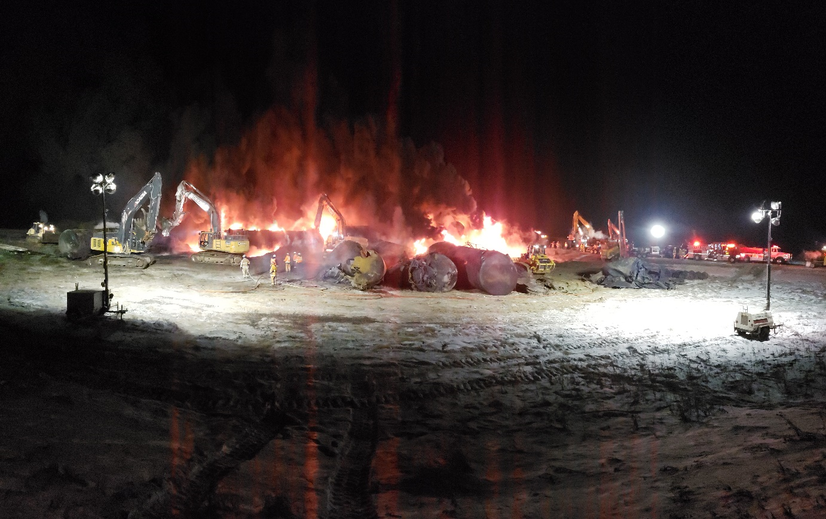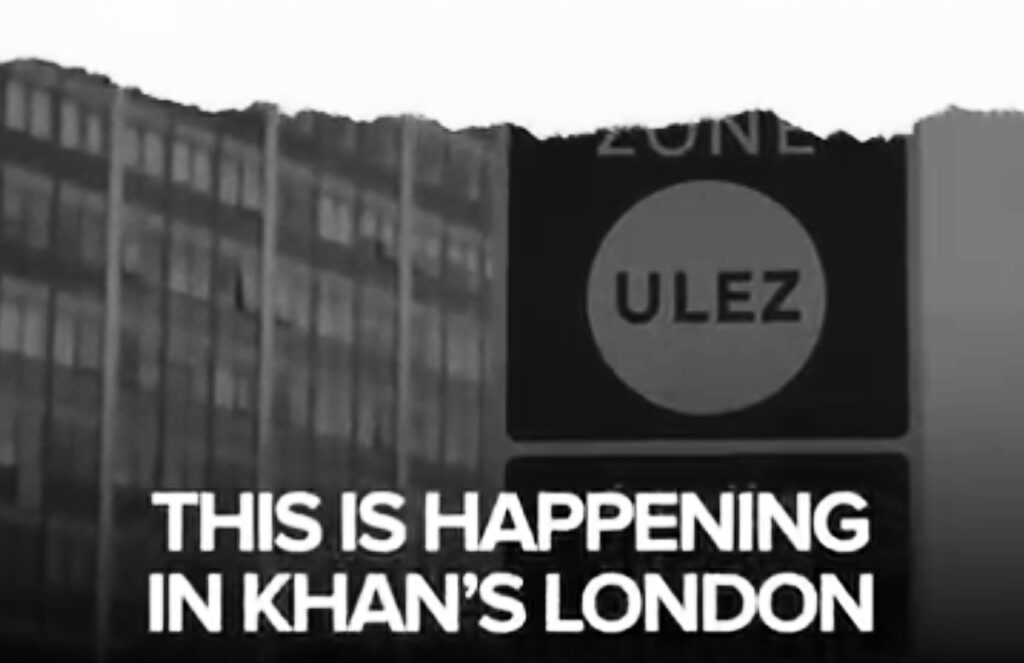Early in the morning of February 6, an oil train derailed and caught fire near Guernsey, Saskatchewan, resulting in the Canadian village’s evacuation. This is the second oil train to derail and burn near Guernsey, following one in December that resulted in a fire and oil spill of 400,000 gallons.
Drone footage of today’s CP crude oil train derailment east of Guernsey, courtesy of Philippe Gaudet. #sask #saskatchewan #trains #skpoli pic.twitter.com/aIE7FhcuAr
— Guy Quenneville (@gqinsk) February 6, 2020
According to the CBC, eyewitness Kyle Brown reported that “he saw a huge fire after the train derailed.”
“It looks like an inferno,” said Brown. “Like a war zone, really. It is pretty bad.”
The Canadian Pacific (CP) train was carrying crude oil and reportedly derailed approximately 2.5 kilometers (1.5 miles) from town. News reports indicate that the train crew escaped without harm.
CP train that derailed in Saskatchewan had 104 cars; 31 went off the tracks. As of about 1 pm ET, 12 were still on fire. There were no injuries in the crash, which took place 11 km from December’s derailment in which 1.5M litres of crude oil was spilled.
— CBC News Alerts (@CBCAlerts) February 6, 2020
Local resident Blaine Weber spoke to the Global News after this second derailment and expressed frustration that Canadian Pacific Railway, the rail company operating the trains, has not been forthcoming with answers about the derailments.
“CP doesn’t seem to be answering any questions from either the public or the authorities,” Weber said.
Canadian Pacific also is under scrutiny over a potential cover up of the details surrounding a runaway freight train accident in 2019 that resulted in the death of all three crew members.
Huge Increase in Canadian Oil-by-Rail Brings More Accidents
A month ago I wrote that the forecast for oil by rail for 2020 would include more trains, fires, and spills. The Canadian oil industry is moving record volumes of oil by rail to the U.S. and with that increase, expect to see more accidents.
Last week, Reuters reported that the CEO of Imperial Oil, a Canadian subsidiary of ExxonMobil, which lobbied against new oil-by-rail regulations in the U.S., was eager to ship more oil by train.
“We see with the current differentials and arbitrage, it makes good economic sense for us to ship barrels on the rail,” said Brad Corson, CEO of Imperial.
As DeSmog has reported in detail, these trains are currently unsafe to operate. The new tank cars that regulators and the rail industry promised were a safety improvement for reducing oil spills and explosions have now failed in five out of five major derailments.
U.S. regulations requiring oil trains to have modern braking systems, known as electronically controlled pneumatic (ECP) brakes — which Canadian operators would have had to comply with as well — were repealed in 2017.
And the volatile mixture of Canadian bitumen with condensate that is being moved in these Canadian trains has proven to ignite in derailments just like the volatile Bakken oil from North Dakota that was involved in the deadly Lac-Megantic, Quebec, accident in 2013.
With oil companies like Imperial making plans to greatly increase the use of rail to move Canadian oil to U.S. ports and refineries, my early predictions for 2020 are already coming true.
Smoke visible from the train fire and derailment near Lanigan Saskatchewan. CP has confirmed it was their train. It’s the same area where another CP derailment leaked 1.5 million litres of crude oil in December pic.twitter.com/tsDAjSBG7b
— Alicia Bridges (@aliciaebridges) February 6, 2020
Main image: Site of December 2019 CP oil train accident site, with the derailment looking south. Credit: Transportation Safety Board of Canada, CC BY–NC–ND 2.0
Subscribe to our newsletter
Stay up to date with DeSmog news and alerts






